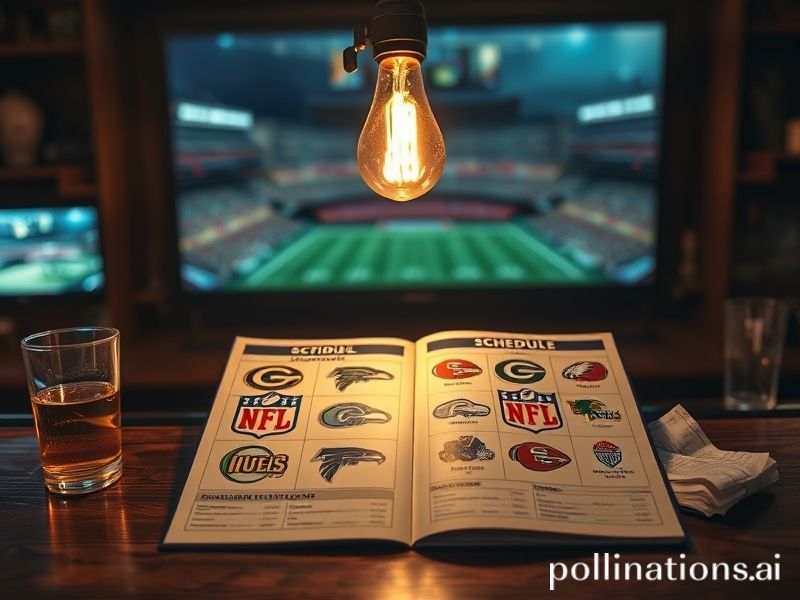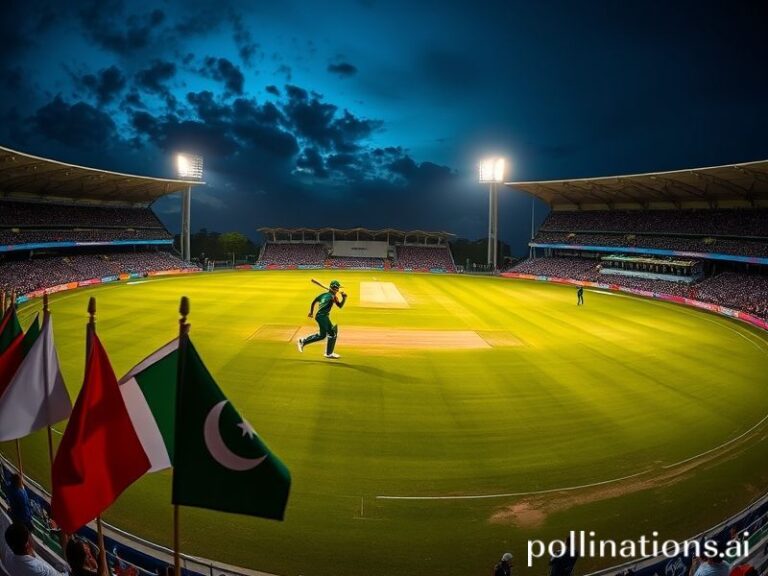nfl schedule
The NFL schedule release used to be a quaint domestic ritual: a few million Americans arguing on sports-talk radio about whether the Patriots had been given too many prime-time slots. Now, thanks to the league’s tireless evangelism—and the unquenchable global appetite for anything loud enough to drown out the news—the 18-week fixture list is parsed with the intensity once reserved for papal conclaves or OPEC output quotas. From Lagos sports bars that open at 2 a.m. to Shanghai dorm rooms where VPNs flicker like dying candles, the spreadsheet landing is treated as a geopolitical event. Because, in the end, what is a schedule if not a calendar of soft-power deployments?
Consider the league’s London “home” games: three this year, delicately spaced so as not to clash with Premier League kickoffs, lest the locals notice their birthright being pick-pocketed by shoulder-padded tourists. Tottenham Hotspur Stadium morphs into an NFL theme park for a fortnight, complete with Bud Light troughs and end-zone bells that ring on the quarter hour, as though someone in the NFL’s international division confused medieval England with Medieval Times. Meanwhile, the German Bundesliga politely reschedules a Saturday so the Munich crowd can watch the Chiefs and Patriots pretend the Atlantic is just a puddle. The irony, of course, is that while Europe subsidizes the NFL’s imperial dreams, American taxpayers are still footing the bill for the actual stadiums—because nothing says “free market” like municipal bonds.
Down in Mexico City, where the Raiders once drew 100,000 souls to Azteca, the schedule’s absence stings more than its presence. This year’s south-of-the-border game was quietly relocated to Los Angeles after the turf resembled a post-apocalyptic chia pet. Mexican fans, who once painted silver-and-black skulls on their faces with the devotion of Día de los Muertos celebrants, now watch the league’s pivot to Brazil with the weary shrug of a jilted lover. “We were the laboratory,” a Mexico City bar owner told me over mezcal, “and now they’ve moved on to São Paulo like we were just a Tinder stopover.” The NFL, ever the courteous guest, left behind only a commemorative jersey and a turf-maintenance bill no one wants to claim.
Across the Pacific, Japan wakes to the schedule at noon on a workday. Amazon Prime Japan, which paid handsomely for Thursday night rights, gamely pushes notifications in katakana: “ブロンコス対ジェッツ、今夜独占生中継!” The translation is accurate, the enthusiasm less so. Ratings are respectable but tepid; salarymen prefer baseball or the gentle escapism of demon-slaying anime. Still, the NFL persists, because global reach is measured not in passion but in pixels: if it streams, it leads. A Tokyo-based consultant explained the league’s logic with the fatalism of a haiku: “We do not need love. We need Wi-Fi.”
Back in the imperial capital—by which I mean the league office on Park Avenue—the schedule is unveiled with the pomp of a moon launch. Roger Goodell steps to the lectern, flanked by graphics that look like a defense contractor’s PowerPoint, and announces “a season unlike any other.” Translation: same teams, different order, but now with extra overseas jet lag. The algorithm that spits out the slate is rumored to weigh television markets, travel fatigue, and the delicate egos of owners who think “parity” is something you park next to the yacht. The result is a Rorschach test of late-capitalist priorities: Buffalo, a city famous for snow, gets a December home game in Detroit because the stadium might collapse; meanwhile, Los Angeles, a city famous for collapsing stadiums, gets two Monday nighters so the celebrities can arrive fashionably late.
The broader significance? Simple: the NFL schedule is now a transnational ledger of who still has disposable income. Each game is a data point in the global experiment to see how many hours humans will trade for the illusion of tribal belonging. When the Bills meet the Jaguars in Tottenham, it’s not about sport; it’s about testing whether a Western New York fan will mortgage a kidney for airfare and a flat white. When Amazon streams a playoff game exclusively, it’s not about convenience; it’s about normalizing the idea that joy requires a subscription. And when the schedule drops at 8 p.m. Eastern, it lands simultaneously in 195 countries like a well-aimed drone strike of content—harmless, loud, and impossible to ignore.
So mark your calendars, Earthlings. Somewhere a factory in Phnom Penh is already stitching midnight-green jerseys for a team that won’t play until October. Somewhere else a London pub owner is calculating how many pints equal one Tom Brady retirement rumor. And somewhere—probably in a basement in Green Bay—a man is screaming at a spreadsheet because his team only got one prime-time slot. In the grand tapestry of human folly, it’s all beautifully, tragically on schedule.







